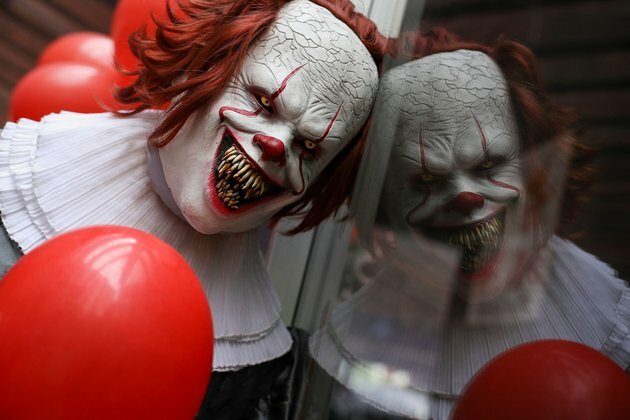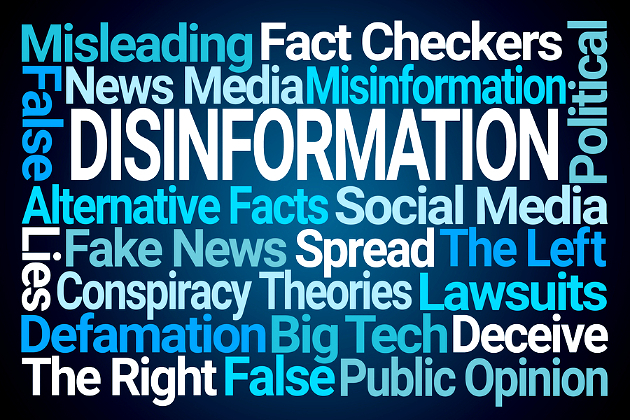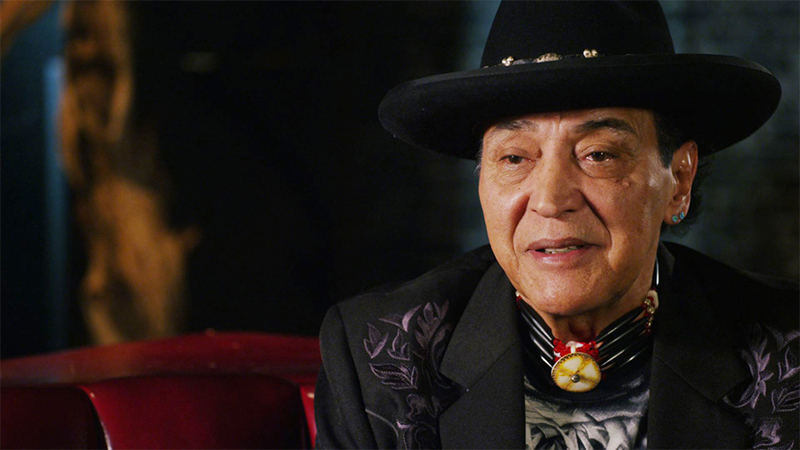Why are we so scared of clowns? Here's what we've discovered
The Conversation
06 Mar 2023, 19:08 GMT+10

Are you scared of clowns? You are not alone. Coulrophobia, or the fear of clowns, is a widely acknowledged phenomenon. Studies indicate this fear is present among both adults and children in many different cultures. Yet it is not well understood due to a lack of focused research.
While numerous possible explanations of the phobia had been put forward in academic literature, no studies had specifically investigated its origins. So we set out to discover the reasons people are frightened by clowns, and to understand the psychology behind this. We also wanted to explore how common the fear of clowns is in adults and to look at the severity of the fear in those who reported it.
To do this, we devised a psychometric questionnaire to assess the prevalence and severity of coulrophobia. The Fear of Clowns Questionnaire was completed by an international sample of 987 people aged between 18 and 77.
More than half the respondents (53.5%) said they were scared of clowns at least to some degree, with 5% saying they were "extremely afraid" of them. Interestingly, this percentage reporting an extreme fear of clowns is slightly higher than those reported for many other phobias, such as animals (3.8%), blood/injection/injuries (3.0%), heights (2.8%), still water or weather events (2.3%), closed spaces (2.2%), and flying (1.3%).
We also found that women are more afraid of clowns than men. The reason for this difference is not clear, but it echoes research findings on other phobias such as the fear of snakes and spiders. We also discovered coulrophobia decreases with age, which again matches up with research into other fears.
Origins of this fear
Our next step was to explore the origins of people's fear of clowns. A follow-up questionnaire was given to the 53.5% who had reported at least some degree of clown fear. This new set of questions related to eight plausible explanations for the origins of this fear, as follows:
Intriguingly, we found the final explanation, of having had a scary personal experience with a clown, had the lowest level of agreement. This indicates that life experience alone is not a sufficient explanation for why people are afraid of them.
In contrast, negative portrayals of clowns in popular culture was a much stronger contributing factor towards coulrophobia. This is understandable since some of the most prominent clowns in books and films are designed to be scary - such as Pennywise, the creepy clown from Stephen King's 1986 novel It. (This character most recently featured in two films in 2017 and 2019, with Bill Skarsgård in the starring role.)
However, some people are afraid of Ronald McDonald, the fast food chain mascot, and he is not meant to scare you. This suggests there might be something more fundamental about the way clowns look that unsettles people.
In fact the strongest factor we identified was hidden emotional signals, suggesting that for many people, a fear of clowns stems from not being able to see their facial expressions due to their make-up. We cannot see their "true" faces and therefore cannot understand their emotional intent. So, for example, we don't know whether they have a frown or a furrowed brow, which would indicate anger. Not being able to detect what a clown is thinking or what they might do next makes some of us on edge when we are around them.
Read more: Calling politicians 'clowns' is a disservice to clowns - yes, really
This research has provided some new insights into why people are afraid of clowns - yet more questions remain. For instance, if makeup which masks emotions causes fear, do people who have their faces painted as animals also create the same kind of effect? Or is there something more particular about the makeup of clowns that drives this fear? This is now the focus of our continued research.
Authors: Sophie Scorey - PhD Researcher, University of South Wales | James Greville - Lecturer in Psychology, University of South Wales | Philip Tyson - Associate Professor of Psychology, University of South Wales | Shakiela Davies - Lecturer in Clinical Psychology and Mental Health, University of South Wales 
 Share
Share
 Tweet
Tweet
 Share
Share
 Flip
Flip
 Email
Email
Watch latest videos
Subscribe and Follow
Get a daily dose of Irish Sun news through our daily email, its complimentary and keeps you fully up to date with world and business news as well.
News RELEASES
Publish news of your business, community or sports group, personnel appointments, major event and more by submitting a news release to Irish Sun.
More InformationInternational
SectionTrump and Zelenskyy meet in private at Pope Francis funeral
THE VATICAN - U.S. President Donald Trump met privately with Ukrainian President Volodymyr Zelenskyy in St. Peter's Basilica in Vatican...
Kennedy and Makary say FDA will phase out synthetic food dyes
WASHINGTON, D.C.: This week, Health Secretary Robert F. Kennedy Jr. and FDA Commissioner Marty Makary said they plan to remove artificial...
Trade talks to target India’s digital market rules
WASHINGTON, D.C.: The United States plans to press India for sweeping changes to its e-commerce policies as part of negotiations aimed...
UK and New Zealand to boost defence ties
LONDON, U.K.: British Prime Minister Keir Starmer and New Zealand Prime Minister Christopher Luxon decided to strengthen their countries'...
US FDA halts dairy testing program due to staff shortage
WASHINGTON, D.C.: The U.S. Food and Drug Administration (FDA) is stopping a quality control program that tests milk and other dairy...
Delta plane catches fire at Orlando airport, passengers evacuated
WASHINGTON, D.C. A Delta Air Lines plane with nearly 300 people on board had an engine fire after leaving the gate at Orlando International...
Europe
SectionToyota’s Hino and Mitsubishi Fuso near merger deal
TOKYO, Japan: Toyota's Hino Motors and Daimler Truck's Mitsubishi Fuso are edging closer to a long-awaited merger of their truck operations,...
Ireland ranks high in EU for violent assaults, EU report says
DUBLIN, Ireland: Ireland has one of the EU's highest rates of violent assault, according to new figures published by the European Commission,...
Ireland backs ban on algorithmic feeds targeting children
DUBLIN, Ireland: Social media companies could soon be required to disable addictive algorithm-driven feeds for children, under a new...
Ancient manuscripts return to Ireland after a millennium
DUBLIN, Ireland: More than a millennium after they were carried abroad for safekeeping, a collection of early Irish monastic manuscripts...
Disinformation threat to democracy, says Ireland’s media minister
DUBLIN, Ireland: Disinformation poses a growing threat to democracy and must be addressed with urgency, Media Minister Patrick O'Donovan...
644 University College Cork staff in Ireland earn over 100,000 euros
DUBLIN, Ireland: University College Cork (UCC) saw a 26 percent jump in staff earning over 100,000 euros last year, with the number...













